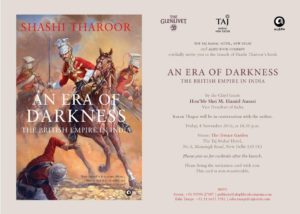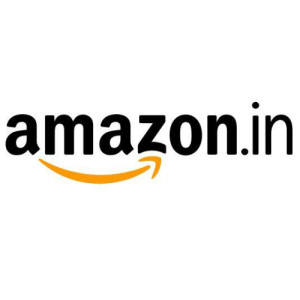Jaya’s newsletter – 2
(Thank you for the response to my inaugural newsletter. Please feel free to write: jayabhattacharjirose1 at gmail dot com )
 The biggest news in terms of business deals has been the acquisition of TATA-owned publishers Westland by Amazon. (http://bit.ly/2fjVVCP) Earlier this year Amazon had a bought a significant minority stake in Westland but last week they bought the company for a purportedly Rs 39.8 crores or approximately $6.5 million. ( http://bit.ly/2fzdfrJ ) Westland has a history of over 50 years in retail, distribution and publishing. It is an amalgamation of two companies, Westland Books and EastWest Books (Madras). “Amazon’s roots are in books and we are excited to be part of that team in the next phase of our journey,” Westland CEO Gautam Padmanabhan said. The publishing list of Westland, its imprints Tranquebar and EastWest, and imprint extension Mikros, include bestselling authors Amish Tripathi, Ashwin Sanghi, Rashmi Bansal, Rujuta Diwekar, Preeti Shenoy, Devdutt Pattanaik, Anuja Chauhan and Ravi Subramanian, among others. This deal highlights the growing significance of India book markets — the third largest English language and with each regional language being of a substantial size too. It will also have an effect on how publishers realign themselves to create strategically good content which makes for good cultural capital but also astute business sense.
The biggest news in terms of business deals has been the acquisition of TATA-owned publishers Westland by Amazon. (http://bit.ly/2fjVVCP) Earlier this year Amazon had a bought a significant minority stake in Westland but last week they bought the company for a purportedly Rs 39.8 crores or approximately $6.5 million. ( http://bit.ly/2fzdfrJ ) Westland has a history of over 50 years in retail, distribution and publishing. It is an amalgamation of two companies, Westland Books and EastWest Books (Madras). “Amazon’s roots are in books and we are excited to be part of that team in the next phase of our journey,” Westland CEO Gautam Padmanabhan said. The publishing list of Westland, its imprints Tranquebar and EastWest, and imprint extension Mikros, include bestselling authors Amish Tripathi, Ashwin Sanghi, Rashmi Bansal, Rujuta Diwekar, Preeti Shenoy, Devdutt Pattanaik, Anuja Chauhan and Ravi Subramanian, among others. This deal highlights the growing significance of India book markets — the third largest English language and with each regional language being of a substantial size too. It will also have an effect on how publishers realign themselves to create strategically good content which makes for good cultural capital but also astute business sense.
For more on the significance of such an acquisition read Bharat Anand’s analysis of AT&T & Time Warner merger in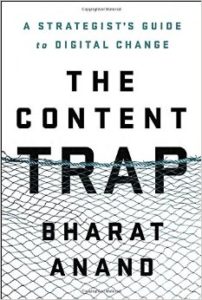 HBR. (http://bit.ly/2feLlOP ) It is a marriage between content and distribution, organizations and tech companies. “Content is an increasingly important complement for every one of the tech companies.” Bharat Anand is the Henry R. Byers Professor of Business Administration at Harvard Business School, where he’s taught media and corporate strategy for 19 years. He is the author of the recently released The Content Trap: A Strategist’s Guide to Digital Change.
HBR. (http://bit.ly/2feLlOP ) It is a marriage between content and distribution, organizations and tech companies. “Content is an increasingly important complement for every one of the tech companies.” Bharat Anand is the Henry R. Byers Professor of Business Administration at Harvard Business School, where he’s taught media and corporate strategy for 19 years. He is the author of the recently released The Content Trap: A Strategist’s Guide to Digital Change.
Publishing business strategies will be bolstered by the GOI announcement as part of the Digital India movement that “Handsets mandated to support Indian language keyboards July 1st 2017” All handsets being manufactured, stored, sold and distributed in India will have to support the inputting of text in English, Hindi and at least one more official Indian language (of 22), and support reading of text in all these languages. (http://bit.ly/2fGxrbb ) In Medianama’s analysis this will speed up the switch in India to smartphones (and featurephones), because they have that capability to use Indic languages using the operating system. ( http://bit.ly/2feSTRG ) In the long run, good news for publishers if their content is gold.
14 November is celebrated as Children’s Day in India. Nearly 50% of the 1.3 bn population in India is below the age of 25 years –a sizeable reading market. As the first-ever Kids & Family Reading Report, India edition by Scholastic India notes that 86% children read the books they select but points out that 71 per cent of kids were currently reading a book for fun. This is the way it should be to create a new generation of readers. (http://scholastic.co.in/readingreport )
Jaya Recommends
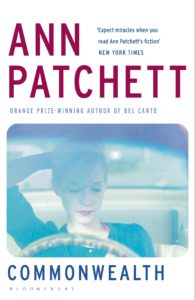 Ann Patchett’s incredibly stunning novel of families and the writing experience Commonwealth
Ann Patchett’s incredibly stunning novel of families and the writing experience Commonwealth  (Bloomsbury)
(Bloomsbury)
Jonathan Eig’s fascinating account of The Birth of the Pill (Pan Books, Pan MacMillan India)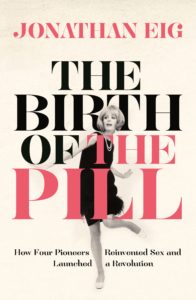
Translating Bharat Reading India edited by Neeta Gupta. A collection of essays discussing the art of translating and what constitutes a good translation. (Yatra Books)
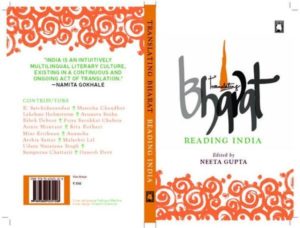 Madeleine Thien’s extraordinary novel Do Not Say We Have Nothing ( My interview with the author: http://bit.ly/2eX5meG )
Madeleine Thien’s extraordinary novel Do Not Say We Have Nothing ( My interview with the author: http://bit.ly/2eX5meG )
On literature and inclusiveness ( http://bit.ly/2fbp9Ym )
Legendary publisher 97-year-old Diana Athill’s latest volume memoir, a delicious 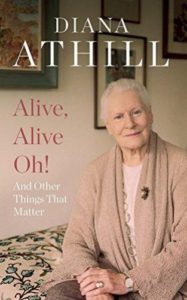 offering Alive, Alive Oh!
offering Alive, Alive Oh!
Book launches:
Amruta Patil ( HarperCollins India)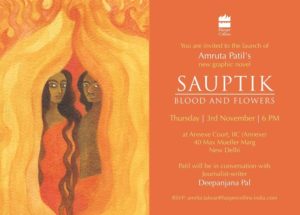
Ritu Menon’s Loitering with Intent: Diary of a Happy Traveller on 5th November 2016, IHC (Speaking Tiger)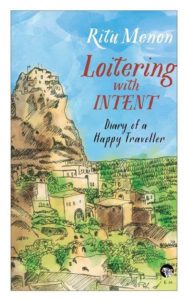
Craig Mod’s book launch in Tokyo: http://kck.st/2fk29Tp
Lit fests: ILF Samanvay: The IHC Indian Languages Festival ( 5-7 Nov 2016)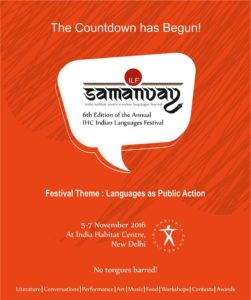
Literary Prize: Haruki Murakami wins this year’s Hans Christian Andersen Literature Award ($74,000). The Hans Christian Andersen Literary Award is not to be confused with the Hans Christian Andersen Award (or medal)— often regarded as the “Little Nobel Prize”— instituted in 1956 to recognize lasting contributions in the field of children’s literature. (http://bit.ly/2eC70iI ) In his acceptance speech he warned against excluding outsiders (http://wapo.st/2fjZ31u )
World Literature Today, the award-winning magazine of international literature and culture, announced Marilyn Nelson as the winner of the 2017 NSK Neustadt Prize for Children’s Literature. Awarded in alternating years with the prestigious Neustadt International Prize for Literature, the biennial NSK Prize ( $25,000) recognizes great achievements in the world of children’s and young-adult storytelling. ( http://bit.ly/2fdIQhX )
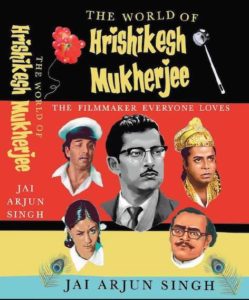 Jai Arjun Singh’s The World of Hrishikesh Mukherjee has been given the Book Award for Excellence in Writing on Cinema (English) at the Mumbai Film Festival.
Jai Arjun Singh’s The World of Hrishikesh Mukherjee has been given the Book Award for Excellence in Writing on Cinema (English) at the Mumbai Film Festival.
Interesting book links:
A Phone Call from Paul , literary podcast for @LitHub done by Paul Holdengraber, NYPL is worth listening to. Here is the latest episode where Paul is in conversation with Junot Diaz. (http://bit.ly/2fxF1p8 )
On the Jaffna library: http://bit.ly/2eC7vtb
Iran and Serbia sign MOU to enhance book publishing: http://bit.ly/2fGykAK
How one Kiwi author is making $200,000 a year publishing romance novels online: http://bit.ly/2fdVQEh
Bengaluru barber popularises Kannada literature: http://bit.ly/2eP8N6X
Literary River, Literature vs Traffic installation: http://bit.ly/2f3dpUD
Six wonderful ways feminist publisher Virago shook up the world of books http://bbc.in/2efJYgs
Turkish Government closes 29 publishers http://bit.ly/2f35AhE
3 November 2016

